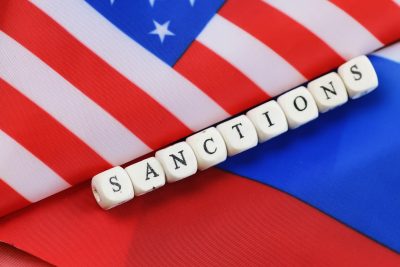The US-Russia Sanctions War: Symbolic, Substantive, or Strategic?

All Global Research articles can be read in 51 languages by activating the “Translate Website” drop down menu on the top banner of our home page (Desktop version).
***
The recently intensified “sanctions war” between the US and Russia has made many observers wonder whether this escalation is symbolic, substantive, or strategic.
The US’ imposition last week of its most intense sanctions against Russia in several years prompted Moscow to respond in kind. Reuters published a handy factbox about the US’ initial moves while Sputnik released one about Russia’s, both of which should be reviewed by readers who aren’t fully familiar with what just happened.
The US reacted real negatively to Russia’s response by viewing it as a so-called “escalation” despite it mostly being tit-for-tat. Moscow also hinted that it has a few more sanctions tricks up its sleeve if Washington decides to take matters further. It therefore remains to be seen what might come next, but now’s the perfect moment to reflect on last week’s events in order to determine whether they’re symbolic, substantive, or strategic.
In a nutshell, the US sanctioned Russian currency and debt, tech companies, information outlets, and officials alongside expelling ten Russian diplomats. Russia responded by expelling an equal number of American diplomats, publishing a list of several American officials who are banned from the country, imposing restrictions on the hiring practices of US diplomatic missions and the movement of its diplomats, and promising to thwart all US-backed meddling efforts inside of Russia. The American moves were made on the unsubstantiated pretext of Russian hacking and meddling accusations while Russia’s were promulgated purely in self-defense. The US aims to create a stigma around Russian companies, its economy, and friendly media outlets while Russia intends to expose actual American meddling within the country.
It can be argued that both sets of moves are symbolic, substantive, and strategic. The American ones were in reaction to a weaponized information warfare narrative (symbolic), target elements of the Russian economy (substantive), and increase the campaign of so-called “maximum pressure” against Moscow (strategic). Russia’s, meanwhile, responded in kind by expelling US diplomats and publishing the list of officials who’ve been banned (symbolic), restricting US diplomatic activities (substantive), and thereby making it more difficult for America to meddle in Russia’s internal affairs (strategic). Basically, the US’ actions are offensive while Russia’s are defensive, and both endeavor to gain strategic advantages over the other in terms of the respective dynamics of their competition (the US pushing against Russia to destabilize it while Russia pushes back to protect itself).
Unlike the US-Chinese trade war, neither side can really inflict all that much damage on the other since their countries never “coupled” in the first place to “decouple” in the present in a way that might be mutually detrimental. This observation has pros and cons for each side. The “positive” side of things is that each party’s moves carry very little chance of provoking the other to significantly damage their interests, while the “negative” one is that this means that each party can at least in theory continue with their moves unabated depending on their political will to do so since it’s unlikely that their counterpart’s response will adversely affect them all that much. Obviously, the “positive” and “negative” determinations are relative and in the eyes of the bolder, dependent also on their intentions, ideologies, and other such factors that differ between them.
With that in mind, it’s appropriate to assess the chances of each respective strategy succeeding. The US’ will only be consequential if Washington has the political will to impose so-called “secondary sanctions” against those who purchase Russian currency and debt, which remains to be seen. Even in that scenario, however, the Russian response might predictably be to move much closer to China on those fronts, thus accelerating their grand strategic convergence and strengthening the newly formed “Justice League” between those two multipolar Great Powers. As for the odds of Russia’s defensive strategy succeeding, it has much brighter prospects since Moscow’s moves will greatly restrict Washington’s ability to meddle in its domestic affairs. For this reason, it’s predicted that US will lose its “sanctions war” with Russia even if it spins its failure as a success.
*
Note to readers: please click the share buttons above or below. Forward this article to your email lists. Crosspost on your blog site, internet forums. etc.
This article was originally published on OneWorld.
Andrew Korybko is an American Moscow-based political analyst specializing in the relationship between the US strategy in Afro-Eurasia, China’s One Belt One Road global vision of New Silk Road connectivity, and Hybrid Warfare. He is a frequent contributor to Global Research.
Featured image is from OneWorld

